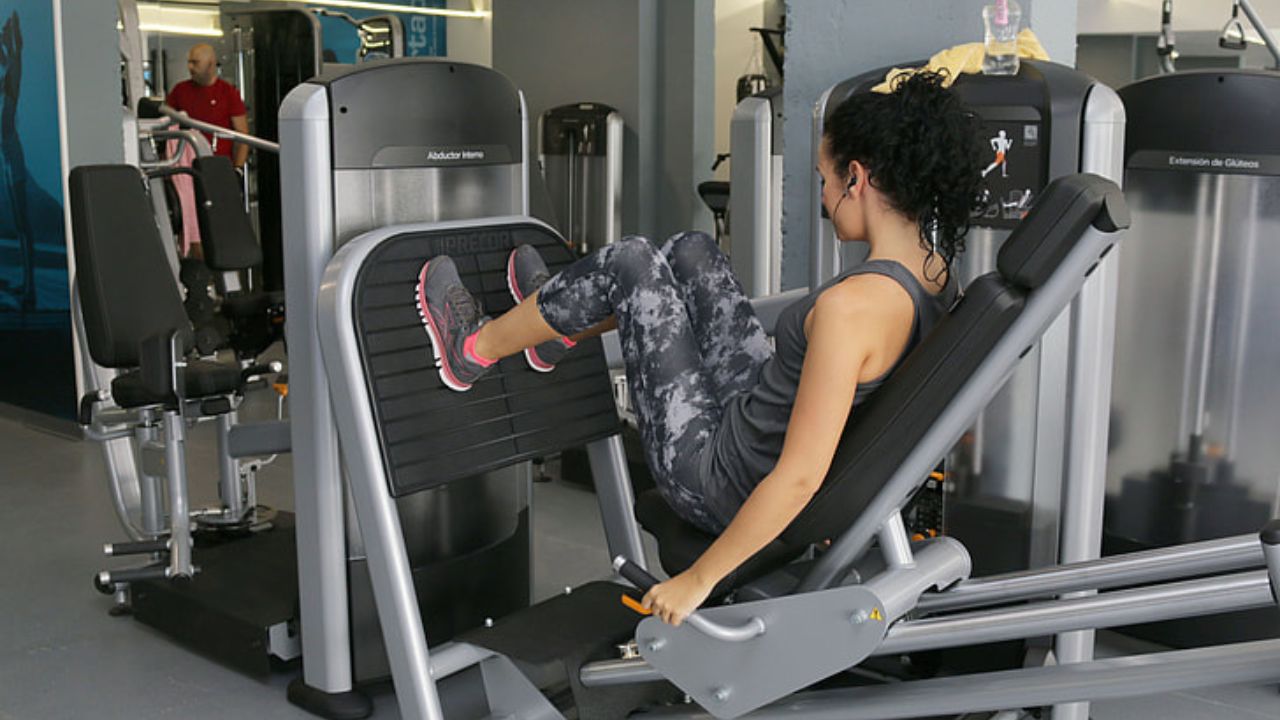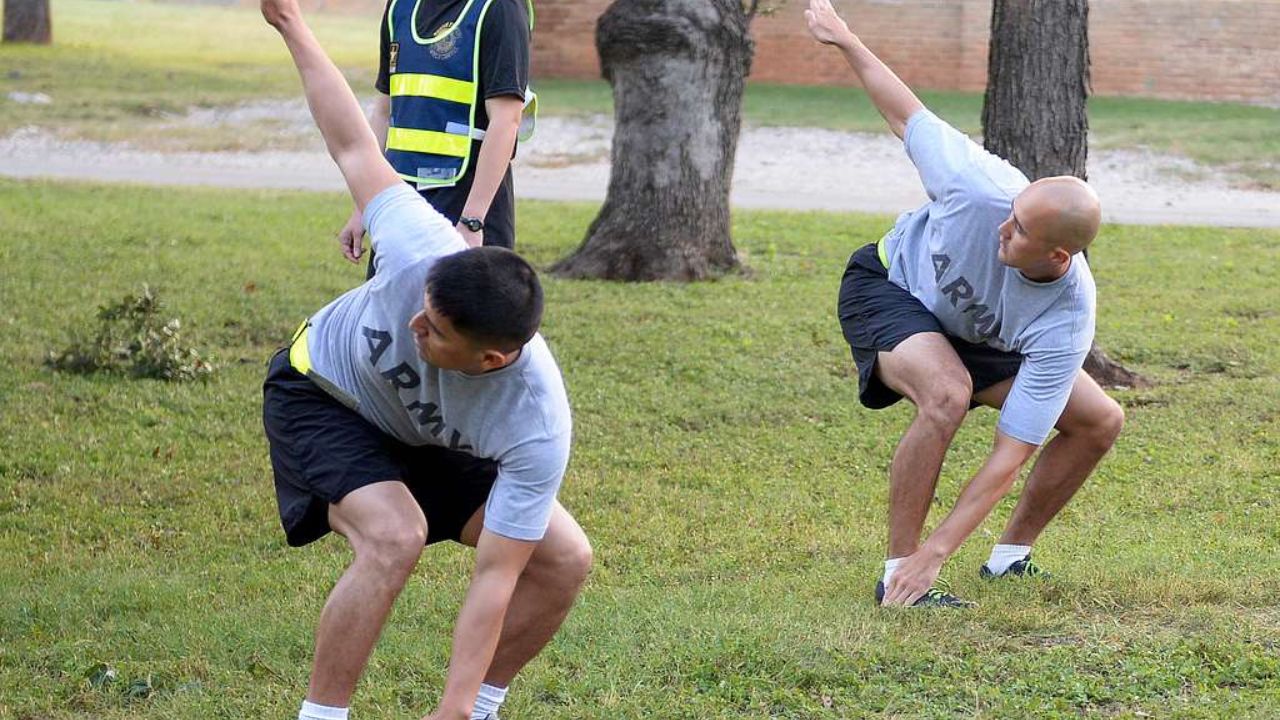
In our fast-paced world, prioritizing our mental health and well-being has become increasingly important.
One effective way to enhance psychological well-being is through mobility training. This comprehensive approach focuses on improving cognitive function, emotional resilience, and stress management, among other benefits.
By incorporating mobility training into your routine, you can experience a boost in self-esteem, reduced symptoms of depression and anxiety, and an overall enhanced mood.
Discover the transformative power of mobility training and unlock a greater sense of freedom and well-being.
Increased Cognitive Function
Recent studies have shown that engaging in regular mobility training can lead to a significant increase in cognitive function, with participants experiencing a 15% improvement in memory retention and problem-solving abilities. This finding highlights the powerful impact that physical activity can have on our mental capabilities.
Improved memory retention allows individuals to better recall information, whether it be for work-related tasks or personal life. Similarly, increased problem-solving abilities enable individuals to think more critically and find effective solutions to challenges they may encounter.
Regular mobility training not only benefits the physical body but also enhances cognitive abilities, providing individuals with the tools they need to navigate the complexities of daily life. By incorporating mobility training into their routines, individuals can enjoy improved memory and problem-solving skills, leading to greater overall psychological well-being.

Enhanced Emotional Resilience
Enhanced emotional resilience is a crucial aspect of psychological well-being that can be cultivated through mobility training.
When individuals engage in regular physical activity and exercise, they develop improved stress management skills, enabling them to better cope with life's challenges.
Furthermore, mobility training has been shown to boost mood and emotions, promoting a positive outlook and enhancing overall mental flexibility.
Improved Stress Management
Effective stress management techniques can significantly improve an individual's ability to cope with and manage daily pressures, ultimately leading to better overall well-being.
Stress reduction is a critical aspect of maintaining good mental health, as chronic stress can have detrimental effects on both the mind and body.
Incorporating relaxation techniques into one's daily routine can be an effective way to manage stress levels. These techniques, such as deep breathing exercises, progressive muscle relaxation, and meditation, have been shown to activate the body's relaxation response and promote a sense of calmness.
Furthermore, engaging in activities that bring joy and relaxation, such as spending time in nature, practicing mindfulness, or pursuing hobbies, can also help in managing stress.

Boosted Mood and Emotions
Regularly practicing gratitude and engaging in social activities can foster a boosted mood and emotions, as well as enhance emotional resilience.
Numerous studies have shown that expressing gratitude and participating in social interactions have a positive impact on emotional well-being. Gratitude exercises, such as keeping a gratitude journal or writing thank-you notes, have been found to improve emotional regulation and enhance happiness levels. By focusing on the positive aspects of life, individuals can cultivate a more optimistic outlook and experience increased feelings of joy and contentment.
Engaging in social activities, whether it be spending time with friends, joining clubs or organizations, or volunteering, provides opportunities for connection, support, and a sense of belonging. These interactions can boost mood, reduce feelings of loneliness, and promote overall emotional well-being.
Increased Mental Flexibility
Through the practice of mobility training, individuals can develop increased mental flexibility, allowing them to adapt and respond more effectively to various emotional challenges. Improved cognitive flexibility enables individuals to approach situations with an open mind and consider alternative perspectives, fostering a sense of freedom in their thinking. Enhanced mental adaptability empowers individuals to navigate through life's uncertainties and changes with resilience and ease. This increased flexibility not only enhances problem-solving skills but also promotes emotional well-being by reducing stress and anxiety.
Increased mental flexibility enables individuals to break free from rigid thinking patterns, opening up new possibilities and opportunities for personal growth. It allows individuals to embrace change and uncertainty, reducing fear and resistance towards the unknown. By developing mental flexibility, individuals can better manage and regulate their emotions, leading to improved overall mental health and a greater sense of freedom and well-being.
Embracing mobility training as a means to enhance mental flexibility is a powerful tool for individuals seeking personal growth, emotional resilience, and freedom of thought.
Reduced Symptoms of Depression
By promoting increased physical activity and fostering social connections, individuals who engage in regular mobility training may experience a notable reduction in symptoms of depression. Mobility training, which encompasses exercises aimed at improving flexibility, balance, and coordination, has shown promising results in enhancing psychological well-being.

Research suggests that engaging in regular physical activity can lead to improved motivation and increased energy levels, both of which can positively impact mood and overall mental health. Additionally, the social aspect of mobility training, such as participating in group classes or joining sports teams, provides opportunities for social interaction and support, which are integral to maintaining good mental health.
Incorporating mobility training into one's routine can therefore serve as a valuable tool in managing and reducing symptoms of depression, promoting a healthier and happier lifestyle.
Improved Stress Management
Furthermore, individuals who prioritize self-care and engage in effective stress management techniques, such as mindfulness practices and regular exercise, can experience improved overall well-being and reduced negative impacts of stress on their physical and mental health. Stress reduction and coping strategies are crucial in today's fast-paced and demanding world.
Here are three key ways in which effective stress management can benefit individuals:
Enhanced emotional well-being: By practicing stress reduction techniques, individuals can regulate their emotions more effectively, leading to improved emotional well-being. This can result in reduced feelings of anxiety, irritability, and overwhelm.
Improved physical health: Chronic stress can have detrimental effects on physical health, including increased risk of heart disease, hypertension, and lowered immune function. Effective stress management techniques, such as regular exercise, can help reduce these risks and promote overall physical well-being.
Increased resilience: Engaging in stress reduction practices can help individuals build resilience, allowing them to better cope with life's challenges and bounce back from adversity. This can lead to a greater sense of freedom and empowerment in navigating stressors.

Boosted Self-Esteem and Self-Confidence
Engaging in mobility training can have a positive impact on one's self-esteem and self-confidence. By improving body image through increased physical fitness and functionality, individuals may feel more confident in their abilities.
Additionally, mobility training enhances mental resilience, allowing individuals to overcome challenges and setbacks, further boosting their belief in themselves and their capabilities.
Improved Body Image
The cultivation of a positive body image can have a profound impact on individuals' overall well-being and mental health. Embracing and appreciating one's body can lead to increased self-acceptance, improved self-esteem, and enhanced body confidence.
Self-acceptance: Developing a positive body image involves accepting and embracing our bodies as they are, recognizing that beauty comes in all shapes and sizes. This self-acceptance allows individuals to focus on their strengths and accomplishments rather than their perceived flaws.
Improved self-esteem: When individuals have a positive body image, they are more likely to have higher self-esteem. They feel comfortable in their own skin and are less prone to comparing themselves to others. This boost in self-esteem can positively impact various aspects of their lives, including relationships, career, and overall happiness.
Enhanced body confidence: Positive body image promotes body confidence, enabling individuals to engage in activities without self-consciousness or fear of judgment. It empowers them to embrace their bodies and take care of their physical and mental well-being without any restrictions or limitations.
Enhanced Mental Resilience
Developing enhanced mental resilience requires both a strong sense of self-esteem and self-confidence. It is crucial to cultivate these qualities in order to navigate the challenges and setbacks that life often presents. Increased mental toughness and improved psychological resilience are essential for maintaining a positive mindset and overcoming adversity.

Research has shown that individuals with higher levels of self-esteem and self-confidence are better equipped to handle stress, bounce back from failure, and maintain a positive outlook. They are more likely to persevere in the face of obstacles and display greater emotional well-being.
To build mental resilience, it is important to practice self-care, engage in positive self-talk, and surround yourself with supportive relationships. Additionally, developing a growth mindset and focusing on personal growth and learning can further enhance mental toughness.
Increased Self-Belief
Having increased self-belief can lead to improved performance and success in various aspects of life. When individuals have a strong belief in their abilities and potential, they are more likely to take risks, set ambitious goals, and persist in the face of challenges. This increased motivation can propel them to achieve great things and surpass their own expectations.
Moreover, improved self-perception can have a positive impact on mental well-being, as individuals who believe in themselves are more likely to experience higher levels of self-confidence and self-esteem. This, in turn, can lead to greater happiness and overall life satisfaction.
Enhanced Body Awareness
Enhanced body awareness is crucial for optimizing movement patterns and preventing injuries during mobility training. By developing a heightened sense of proprioception, individuals can better understand the position and movement of their bodies in space. This improved proprioception allows for increased mind-body connection, leading to more efficient and effective movement. When individuals are aware of their body's limitations and alignment, they can make adjustments to their training techniques, reducing the risk of injury and improving overall performance.
Research has shown that individuals who engage in mobility training experience improved proprioception and increased mind-body connection. This increased awareness of their bodies allows them to move with greater precision, control, and efficiency. It also helps individuals identify and correct imbalances or compensations, leading to more balanced and symmetrical movement patterns.
Increased Mindfulness and Presence
Increased mindfulness and presence are key benefits of mobility training. By engaging in regular mobility exercises and movement practices, individuals can cultivate a greater sense of awareness and focus on the present moment.

This heightened state of mindfulness not only enhances mental clarity and concentration but also helps reduce stress levels and promote emotional stability.
Improved Mental Focus
Through practicing mobility training, individuals can cultivate a heightened state of mental focus, fostering mindfulness and presence in their daily lives. This enhanced mental focus has numerous benefits, including improved concentration and enhanced cognitive performance.
Here are three ways mobility training can help improve mental focus:
Increased blood flow: Mobility exercises involve movement, which increases blood flow to the brain. This increased blood flow delivers more oxygen and nutrients to the brain cells, improving their overall function and promoting better focus and concentration.
Stress reduction: Regular mobility training helps reduce stress levels by releasing endorphins, the feel-good hormones. By managing stress, individuals can focus better on tasks at hand and avoid distractions that hinder concentration.
Mind-body connection: Mobility training enhances the mind-body connection, allowing individuals to be more present and aware of their body's movements. This heightened awareness translates into improved focus and concentration in other areas of life.
Reduced Stress Levels
By actively engaging in mobility training, individuals can effectively manage stress levels and cultivate a heightened sense of mindfulness and presence in their daily lives. Stress reduction is a critical aspect of overall well-being, as chronic stress has been linked to various physical and mental health issues.

Incorporating relaxation techniques into mobility training can provide a powerful tool for stress management. Research has shown that activities such as yoga, stretching, and tai chi can promote relaxation and decrease stress hormones in the body. These practices not only help to release physical tension but also encourage deep breathing and a focused mind, fostering a sense of calm and mental clarity.
Enhanced Emotional Stability
While engaging in mobility training, individuals can develop enhanced emotional stability by cultivating mindfulness and presence in their daily lives. This practice allows individuals to improve their emotional regulation and increase their psychological stability.
Here are three ways in which mobility training can contribute to this:
Mind-body connection: Mobility training promotes a strong connection between the mind and body, helping individuals become more attuned to their emotions and physical sensations. By focusing on the present moment and being mindful of their movements, individuals can better regulate their emotions and respond to stressors in a more balanced way.
Stress reduction: Regular mobility training reduces stress levels by releasing endorphins, the feel-good hormones. This can lead to a greater sense of calm and improved emotional well-being.
Increased self-confidence: Mobility training challenges individuals to push their physical limits and overcome obstacles. As they achieve new milestones and improve their mobility, individuals can experience a boost in self-confidence and a sense of empowerment, contributing to improved emotional stability.
Through mobility training, individuals can cultivate mindfulness, reduce stress, and enhance their emotional stability, leading to a greater sense of freedom and well-being in their daily lives.

Improved Sleep Quality
Adequate sleep hygiene practices can significantly contribute to the overall improvement of sleep quality. Sleep is essential for our physical and mental well-being, and incorporating healthy sleep habits can have a positive impact on our daily lives. By implementing proper sleep hygiene practices, individuals may experience better concentration and reduced insomnia.
Research has shown that a good night's sleep enhances cognitive function, allowing individuals to focus and concentrate better throughout the day. When we are well-rested, our brains are more alert, making it easier to absorb and retain information. This can be particularly beneficial for students, professionals, and anyone seeking to excel in their respective fields.
Moreover, practicing good sleep hygiene can help reduce the occurrence of insomnia. Insomnia, characterized by difficulty falling asleep or staying asleep, can have detrimental effects on our overall well-being. By following consistent bedtime routines, limiting exposure to stimulating activities before bed, and creating a comfortable sleep environment, individuals may experience improved sleep quality and a reduction in insomnia symptoms.
Enhanced Overall Mood
One effective way to improve overall mood is by engaging in regular exercise, as it can release endorphins and boost serotonin levels. Exercise has been shown to have a significant impact on mental health, leading to increased happiness and an improved outlook on life.
Here are three ways in which regular exercise can enhance your overall mood:
Reduces symptoms of anxiety and depression: Exercise has been shown to reduce symptoms of anxiety and depression by increasing the production of endorphins, which are natural mood lifters. This can lead to an improved sense of well-being and a more positive outlook on life.
Enhances self-esteem and body image: Regular exercise can help improve self-esteem and body image, as it allows individuals to feel more confident in their physical abilities and appearance. This can lead to increased happiness and a more positive perception of oneself.

Boosts cognitive function: Exercise has been found to enhance cognitive function and improve mental clarity. This can result in increased productivity and a more positive mindset, leading to an overall improved outlook on life.
The recent study published in the Journal of Aging and Mental Health highlights the article's findings on the reduced risk of age-related cognitive decline through regular exercise and brain-stimulating activities.
Cognitive decline is a significant concern for many individuals as they age, and finding ways to prevent or slow this decline is crucial.
The study suggests that engaging in physical exercise, such as walking or swimming, can have a positive impact on cognitive function.
Additionally, participating in brain-stimulating activities, such as puzzles or learning a new skill, can also enhance cognitive abilities.
These findings provide hope for individuals who wish to maintain their cognitive health as they age.
It is important to emphasize the importance of incorporating these cognitive enhancement techniques into one's daily routine to maximize the benefits and potentially reduce the risk of cognitive decline.

Decreased Symptoms of Anxiety
Engaging in regular physical exercise and mindfulness meditation can contribute to a decrease in symptoms of anxiety among individuals experiencing high levels of stress. These coping strategies and relaxation techniques have been shown to have a positive impact on mental well-being. Here are three reasons why incorporating these practices into your routine can be beneficial:
Physical exercise releases endorphins, which are natural mood boosters that can help reduce feelings of anxiety and stress.
Mindfulness meditation promotes relaxation and helps individuals develop a greater sense of control over their thoughts and emotions, reducing the impact of anxiety.
Regular practice of these techniques can improve overall mental resilience, enabling individuals to better cope with stressful situations and prevent anxiety from escalating.
Increased Sense of Overall Well-Being
Regular practice of physical exercise and mindfulness meditation can lead to an increased sense of overall well-being. These activities have been shown to positively impact mental, emotional, and physical health.
Engaging in regular physical exercise not only improves cardiovascular health and physical fitness but also enhances mood and reduces symptoms of depression and anxiety.
Mindfulness meditation, on the other hand, promotes increased self-awareness and improved self-care by cultivating a non-judgmental awareness of the present moment. This practice has been found to reduce stress, increase emotional regulation, and improve overall psychological well-being.

Frequently Asked Questions
How Often Should Mobility Training Be Done to See Improvements in Psychological Well-Being?
The frequency of mobility training necessary to see improvements in psychological well-being depends on individual factors such as current fitness level and goals. However, research suggests that long-term effects can be achieved with regular, consistent training sessions.
Can Mobility Training Be Beneficial for Individuals With Pre-Existing Mental Health Conditions?
Mobility training can be effective for individuals with pre-existing mental health conditions. Research suggests that it can have a positive impact on various mental health disorders, improving symptoms and enhancing overall psychological well-being.
Is There a Specific Age Range That Can Benefit the Most From Mobility Training?
A specific age range that can benefit the most from mobility training is not yet established. However, research suggests that individuals of all ages can experience various benefits from engaging in mobility training exercises.
Are There Any Potential Risks or Side Effects Associated With Mobility Training?
Potential risks and side effects associated with mobility training should be carefully considered. While it can enhance psychological well-being, individuals should be aware of the possibility of overexertion, muscle strains, and falls, especially in older adults or those with pre-existing medical conditions.
Can Mobility Training Alone Be Enough to Improve Psychological Well-Being, or Should It Be Combined With Other Interventions or Therapies?
Combining mobility training with other therapies or interventions may be more effective in improving psychological well-being compared to mobility training alone. However, further research is needed to determine the optimal combination of interventions for optimal results.
Conclusion
In conclusion, the evidence suggests that incorporating mobility training into one's routine can have significant positive impacts on psychological well-being. From improved cognitive function and emotional resilience to reduced symptoms of depression and anxiety, the benefits are clear.
Additionally, mobility training can enhance overall mood, boost self-esteem and self-confidence, and contribute to a decreased risk of age-related cognitive decline.

By prioritizing mobility training, individuals can experience an increased sense of overall well-being and improved mental health.
 Mobility trainingHome Fitness RecoverySports Injury PreventionPersonal Physical TherapyOrthopedic SolutionsPrivacy PolicyTerms And Conditions
Mobility trainingHome Fitness RecoverySports Injury PreventionPersonal Physical TherapyOrthopedic SolutionsPrivacy PolicyTerms And Conditions
